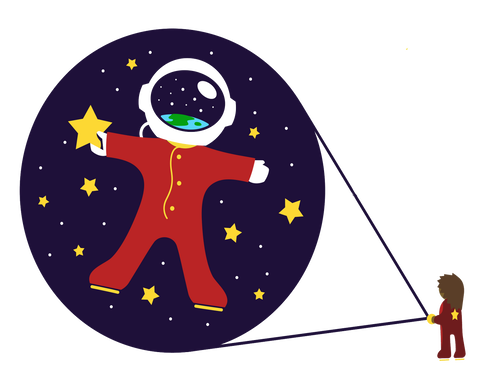Under the Nile
Janice Masoud, with a background in fashion design and production, founded Under the Nile 25 years ago in pursuit of organic cotton baby clothing solutions that would not irritate her babies' skin. Her mission extended beyond her own children; she wanted to provide safe and comfortable clothing for all children. As her research uncovered more and more evidence of the importance of organic cotton, her determination to launch her own company grew.
As she ruminated on the trajectory of her business and the impact she desired to have, it became essential to me that organic cotton be featured, as well as that sustainable and responsible practices be utilized for all products.
She ventured to Egypt and discovered a factory in the north of Cairo that matched her ethical standards, with the business practices, local community interest, and environmental initiatives all held in high regard.
With unified purpose, she embarked on a mission to bring about beneficial impacts on both the environment and society.
Since its launch, Under the Nile has shown continuous dedication to its mission of providing employment while ensuring customer satisfaction and sustainability. Their 13 Villages Project is a significant example of this commitment. In this project, women in rural villages are trained to craft the brand's fruit and vegetable toys. Janice recollected her first visit to a village, where she encountered a mother making a carrot toy with her baby on her lap. Despite the wintry weather, the baby had no socks or hat on his head, which prompted Janice to inquire why. On her next visit, she rejoiced in the sight of the mother's baby all grown up, with appropriate foot and headwear. This project not only furnishes the mothers with a source of income, but also enables them to shape their lives and those of their kin and community.
Their mission is to strengthen the environment and those impacted by their company, from the cultivation of cotton to customers.

Their cotton is not only organic, but Biodynamic; an advanced process compared to standard organic farming.
The farm utilizes biodynamic, self-sustaining farming practices rather than organic. This means that, instead of using imported fertilizers, biodynamic farming addresses its needs from within the farm, creating nutrient-rich humus through integrating livestock and crop rotation. Biodynamic farms forego the use of pesticides due to their biologically diverse habitats which encourages predator-prey dynamics. Additionally, the humus content of the soil makes it naturally resistant to insects and maladies, and the NOP (National Organic Program) in the US allows for certain parcels to be officially certified.
Biodynamic farming requires the entirety of a farm to be certified and is incredibly difficult to implement due to its high intensity. Only a select group of farmers globally have adopted this strategy, as it necessitates rigorous discipline, planning, and attention.
As a woman-owned company, She recognizes the persistent difficulties that women confront in their occupations.
Empowering Women
Currently, 30% of our Egypt-based factory workforce is composed of female personnel. However, this was not previously the case - marriage traditionally triggered female employees to leave their positions, hampering the production cycle. Consequently, solutions were sought to combat this issue.
Anna Koelling, Snuggle Bunny Toy's gender equality strategist, flew in from Germany to take on the large-scale project. Noted advocate for women's rights, Anna was a natural fit for the job. During bi-annual visits to the farm, Anna was kept updated on the project's progress. Initially, Anna was disappointed that the changes in gender equality weren't occurring at a faster pace, given the traditional culture of Egypt. But eventually, Anna observed the positive changes between the women and men at the factory, a most rewarding result.
Due to enhanced mutual respect between genders, male personnel now openly heeded the input from their female colleagues, which was manifested in the adoption of a variety of beneficial modifications at our factory. Samya, for example, is now heading our Under the Nile toyshop, comprised of both genders.
For decades, Under the Nile has been proud to witness the progress of both genders, having all been part of the journey.
Education
The Sekem School is located on the premises of Under the Nile's factory, and it offers primary and secondary education to children from neighboring villages, regardless of their socioeconomic or family backgrounds. Established with the principles of Rudolf Steiner in its core, the school provides its students with the opportunity to develop an appreciation of humanity and global citizenship at a young age.
Community
When Sekem founder Ibrahim Abouleish first visited Egypt in 1998, he was shocked to witness the widespread prevalence of child labor, especially in rural areas characterized by acute poverty. Consequently, he initiated the Chamomile Program, recognizing that without intervention, these same children might be at risk of exploitation.The Sekem farm welcomes economically disadvantaged children from the local region on a daily basis, providing them with nourishment, medical care, apparel, and life-enriching instruction.Children enrolled in the Sekem School program must attend school full-time. When classes end, they are supervised by a social worker while picking chamomile flowers, receiving a full day's wage for a half-day's work. Through this arrangement, not only do the families receive income but the children and their communities can benefit, too; education is a powerful instrument to combat poverty.
